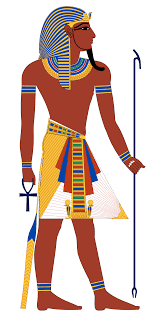Historical Details Related to
First Kings 9:10 to 11:43

As Paul House discusses in his commentary on First and Second Kings, certain foreign, domestic, economic, and religious factors changed during Solomon’s last sixteen years. First, Isra’el’s relationship with Egypt deteriorated over time. Though 9:16 states that the Pharaoh, possibly Siamun, conquered Gezer and gave it as a wedding gift to his daughter, Solomon’s wife, by 11:14-25 a new pharaoh, possibly Shishak, supported Solomon’s enemies. Unlike his immediate predecessor, Shishak was able to unite Egypt and then mount aggressive campaigns against neighboring countries. Eventually Shishak invaded Jerusalem itself during the reign of Rehoboam, Solomon’s son (to see link click Dc – A House Divided). Similarly, Solomon’s influence in Syria was weakened when Rezon seized control of Damascus (First Kings 11:23-25) and when Hadad became king of Edom (First Kings 11:14-22). Probably Razon’s power threatened Isra’el more than Hadad’s. Still, coupled with Egypt’s new attitude, Edom and Syrian’s rebellions presented Solomon with foes on all sides.
Domestic tensions grew as well. The northern tribes began to feel that they were shouldering more than their fair share of the tax and conscripted labor burden. They perhaps felt that Judah received special treatment for being David’s clan. This fits with the north’s complaints after Solomon’s death (First Kings 12:1-4). Probably not even Judah appreciated the taxes that all Solomon’s building projects required (First Kings 4:1-28). Jeroboam, a young and vigorous opponent, arose as an alternative to the house of Solomon (First Kings 11:26-28). Because of Solomon’s spiritual idolatry, Ha’Shem supported Jeroboam’s rise to power, as did Shishak of Egypt, though for less religious reasons (First Kings 11:29-40).
Despite such complications, however, Solomon was able to maintain order, mostly because of his economic prowess. Isra’el enjoyed prosperity for most of these years because of Solomon’s ability to utilize the trade potential that remained at his disposal. For instance, he sustained his shipping partnership with Hiram of Tyre. Solomon built the ships, but Hiram’s men commanded and sailed them (1 Kgs 9:26-28). This arrangement must have benefited Hiram, since he continued the relationship even after he felt Solomon’s payment of several Gililean towns was worthless (1 Kings 9:10-14). Solomon also strengthened his caravan trade by improving relations with the queen of Sheva, a nation that had come to dominate the trade in spice and incense for which southwestern Arabia was famous. Since Solomon controlled part of the land route and had shipping interests as well, it was in the queen’s best interest to pay Isra’el’s king a visit. All these financial ventures bought Solomon peace at home, as the presence of luxury items often does (1 Kings 10:14-29).
All of these details contribute to the author’s accurate historical portrait of Solomon’s final years in power. However, as in the whole book, the major problem is Solomon’s spiritual apostasy to ADONAI. In this regard, he was a tragic figure. Unlike his father David, Solomon worshiped other gods, in particular those of his many wives (see Bx – Solomon’s Wives). This decision violated both the Mosaic and Davidic Covenants and left Solomon open to the discipline implicit in them. Earlier the prophet Nathan helped Solomon become king (see Al – A Royal Conspiracy). Now a prophet named Ahijah will prophesy the end of the Davidic dynasty’s exclusive rule over Isra’el (see Bz – The Prophecy of Ahijah). Solomon’s dynasty could have weathered foreign, domestic, and economic challenges, but idolatry was the last straw, so to speak. For whoever chooses to be the world’s friend makes himself an enemy of God (James 4:4). How could the dynasty survive?205



Leave A Comment